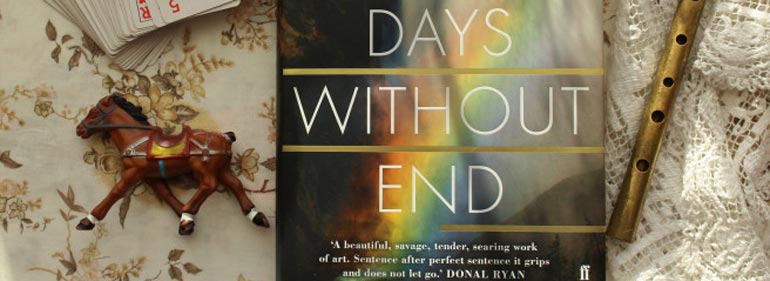Sebastian Barry’s ‘Days Without End’, which has just won the Costa Book Award, holds a fragile flicker of gay love against a violent hurricane, says Stephen Boylan.
“I carry John Cole inside… I imagined him near me and I imagined I kissed his face. I imagined he said nice things to me and I imagined me saying back I thought he was the best man I ever knowed.”
For almost 20 years, Sebastian Barry has been writing about the trials and tribulations of the McNulty family. We were first introduced to the soldier Eneas in 1998’s The Whereabouts of Eneas McNulty, then met his brother, Jack, in 2014’s The Temporary Gentleman and, in between, we were told the heartbreaking story of Rosemary, their sister-in-law in the 2008 bestseller, The Secret Scripture, the film adaptation of which is due imminently.
For his latest novel, Days Without End, Barry reaches even further back into the McNulty family archive to the 1850s; Thomas McNulty, aged just 17, arrives on American shores at a time of great upheaval. Having survived an ocean journey that many didn’t, he meets John Cole from New England, three years his senior, who took to the road himself when he was just 12 years old. Their connection is instant, and Thomas is besotted; a physical relationship develops and he refers repeatedly to John as his love and his beau. (The rainbow that adorns the book’s beautiful cover is a very deliberate choice.)
They enlist in the US Army, headlong into the full-blown horrors of the Indian Wars and the ensuing Civil War. Floods, extreme heat, disease, and genocide greet them as they make their journey from boyhood into manhood; they are the witnesses and the participants in the slaughter of Indian men, women and children. Fleeing the battlefields, they become de facto parents of a young Indian girl, Winona, who they realise could be their path to salvation and happiness. They set up home, settle and thrive, until their lost years threaten to reclaim them.
Barry wrote an emotive letter to the Irish Times (pictured below) in the heel of the marriage equality hunt last year, in which he stated he was voting Yes so he could honour “the majesty, radiance and promise of his [son’s] human soul”.

Days Without End is clearly a very personal book (it’s dedicated to Barry’s son, Toby), but it’s painted in a broad historical context. At its core this is a love story, but one in which there is little space for romantic declarations. Deft rays of light shine through at times, especially in the sections where the boys take on the roles of female impersonators in a town sorely lacking in females.
Barry tells Thomas’s story directly, first person, laced through with a distinctive accent. While it may take some getting used to at first, Thomas’s voice rings loud and clear and strong. He is a brave, loving, and determined man, steadfast while holding the fragile flicker of his love against the violent hurricane blowing against them.
This review was originally published in GCN in November 2016, read the full issue here.
© 2017 GCN (Gay Community News). All rights reserved.
